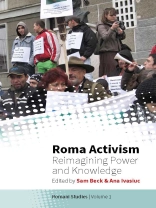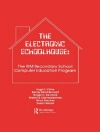Exploring contemporary debates and developments in Roma-related research and forms of activism, this volume argues for taking up reflexivity as practice in these fields, and advocates a necessary renewal of research sites, methods, and epistemologies. The contributors gathered here – whose professional trajectories often lie at the confluence between activism, academia, and policy or development interventions – are exceptionally well placed to reflect on mainstream practices in all these fields, and, from their particular positions, envision a reimagining of these practices.
Содержание
List of Illustrations
List of Abbreviations
Preface
Sam Beck
Introduction: Renewing Research and Romani Activism
Ana Ivasiuc
PART I: RENEWING METHODS, RENEWING SITES
Chapter 1. Neoliberalism and the Spirit of Non-Governmentalism: Towards an Anthroposociology of Roma-Related Engagement and Activism
Huub van Baar
Chapter 2. Emotions and Procedures: Contradictions of Early Romani Activism in a Postconflict Intervention
Ana Chirițoiu
Chapter 3. Encounters at the Margins: Activism and Research in Romani Studies in Postsocialist Romania
László Fosztó
PART II: RENEWING EPISTEMOLOGIES
Chapter 4. Paradigm Shift and Romani Studies: Research “on” or “for” and “with” the Roma
Andrew Ryder
Chapter 5. Transgressing Borders: Challenging Racist and Sexist Epistemology
Angéla Kóczé
Chapter 6. Alter-Narratives: Seeing Ordinary Agency
Ana Ivasiuc
PART III: RENEWING ACTIVISMS
Chapter 7. Policy Input on the Front Line: Dilemmas of the Ethical Academic
Margaret Greenfields
Chapter 8. Between Global Solidarity and National Belonging: The Politics of Inclusion for Romanlar in Turkey
Danielle V. Schoon
Chapter 9. “Be Young, Be Roma”: Modern Roma Youth Activism in the Current Panorama of Romani Affairs
Anna Mirga-Kruszelnicka
Index
Об авторе
Ana Ivasiuc is an anthropologist affiliated with the Centre for Conflict Studies at the Philipps University in Marburg, Germany. Through her past activity as a research coordinator within a Romani NGO in Romania, she has conducted research at the confluence between Romani activism and academia. She is the winner of the 2017 Herder–Council for European Studies Fellowship.












